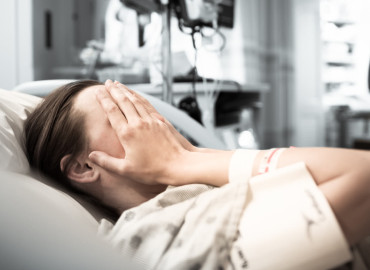Pain and Suffering Damages

An injured plaintiff has the right to recover damages for pain and suffering that he might suffer as a result of a defendant’s tortious act against the plaintiff.
Pain and suffering damages frequently constitute the largest portion of personal injury awards.
Nature of pain and suffering
Damages for pain and suffering are intended to compensate a plaintiff for physical pain from an injury, mental suffering as a result of the physical pain, and mental anguish from the injury that is not directly related to physical pain.
Pleading
Damages for pain and suffering are considered general damages because they are the normal and natural results of a personal injury. Thus, they need not be pleaded with specificity to give a defendant notice that they will be proved at trial.
However, a special pleading may be required if:
- The pain and suffering are not the natural result of the defendant’s act;
- The jurisdiction adheres to the impact rule, which requires that the mental anguish resulted from a physical injury; or
- the jurisdiction adheres to the theory that the plaintiff must have been in the zone of physical danger when he was injured.
Proof
Because a plaintiff may suffer both medical and mental pain and suffering, his proof may be both objective and subjective. The more objective the evidence, the more likely the jury will be to believe that the plaintiff is not feigning his pain and suffering.
Objective evidence may come from an expert medical witness, such as the plaintiff’s physician, who can provide a credible explanation of the pain and suffering. The expert witness may explain any drug, physical, or mental therapy or any surgeries that are required to treat the pain.
Expert medical evidence is not required, however, and the plaintiff may be entitled to damages based on testimonials from lay witnesses alone. That testimony could show that the plaintiff has withdrawn from participation in social events or activities due to his pain and suffering.
The plaintiff may also rely on inferences in proving his pain and suffering. For example, mental suffering may be inferred from physical injuries, especially if they are permanent, or the nature of the accident.
The use of demonstrative evidence, including photographs, videos, exhibition of injuries, and courtroom demonstrations may assist the plaintiff in establishing the nature of the pain or suffering.
With respect to a plaintiff’s entitlement to damages for future pain and suffering, the amount that may be awarded will depend on proof of the extent, duration, and severity of the pain and suffering. The plaintiff must also establish that the occurrence of future pain or suffering is reasonably certain or reasonably probable. Generally, subjective testimony alone is not sufficient to support an award for future pain and suffering, especially if the underlying injury is subjective.
Damages
Generally, damages should reasonably compensate a plaintiff for the pain and suffering. The award should be based on the nature, severity, and duration of both the underlying injury and the pain and suffering itself; the personal characteristics of the plaintiff, including his age and health; and the components of the pain and suffering.
Disclaimer: Ross Feller Casey, LLP provides legal advice only after an attorney-client relationship is formed. Our website is an introduction to the firm and does not create a relationship between our attorneys and clients. An attorney-client relationship is formed only after a written agreement is signed by the client and the firm. Because every case is unique, the description of awards and summary of cases successfully handled are not intended to imply or guarantee that same success in other cases. Ross Feller Casey, LLP represents catastrophically injured persons and their families in injury and wrongful death cases, providing legal representation in Pennsylvania and New Jersey.





